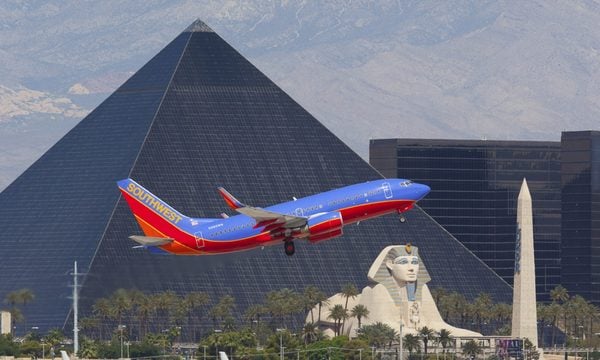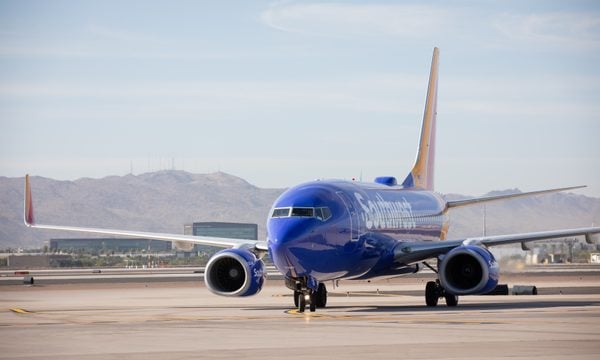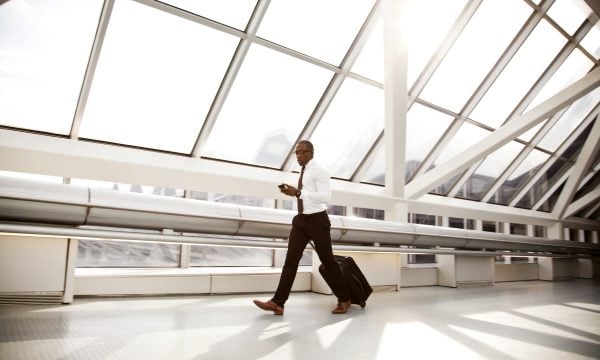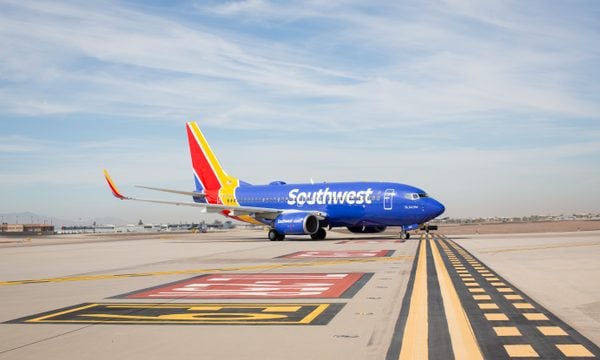Southwest Ditches Choose-Your-Own Seating Among Other Changes
In response to consumer feedback and market pressures, Southwest is getting rid of open seating, adding red-eyes.
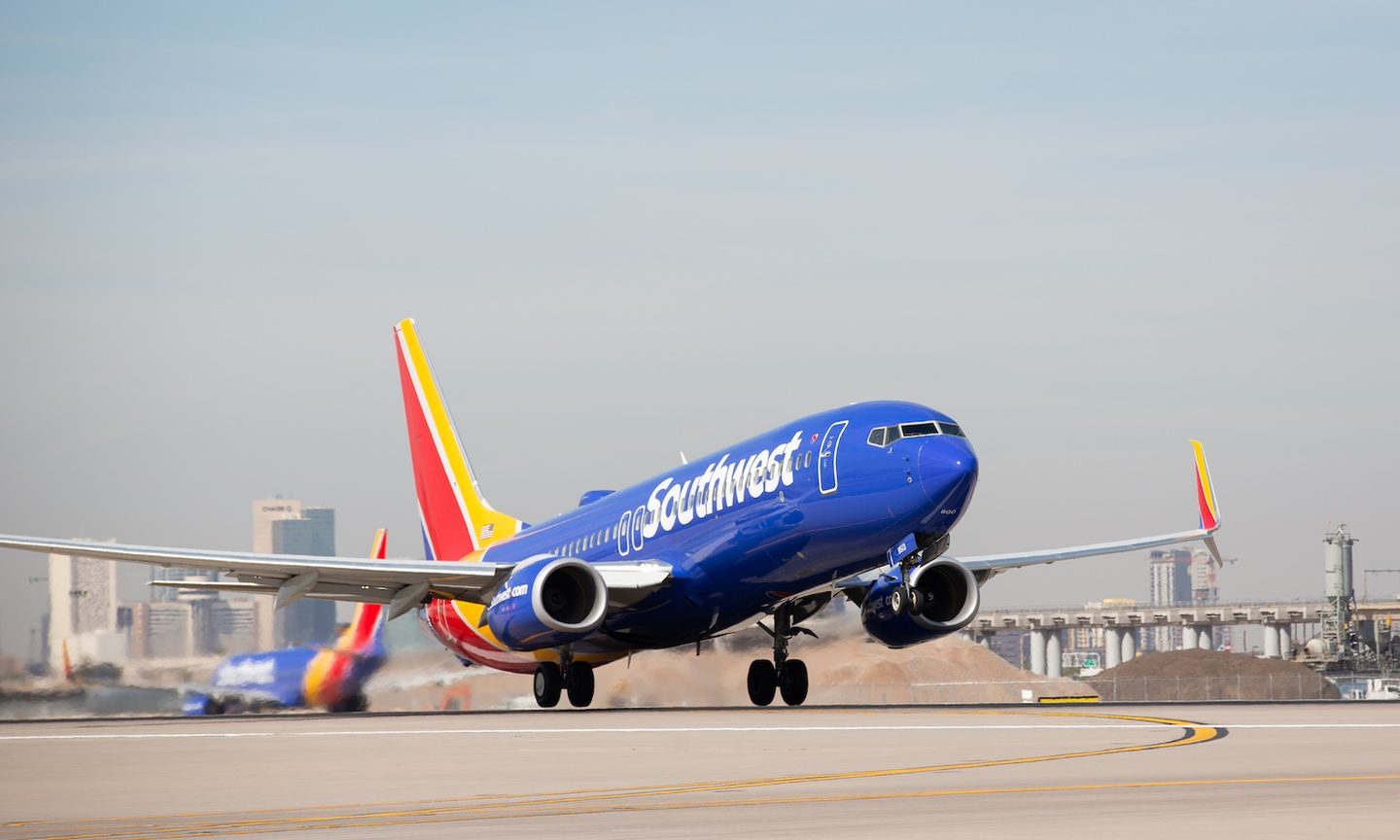
Many or all of the products on this page are from partners who compensate us when you click to or take an action on their website, but this does not influence our evaluations or ratings. Our opinions are our own.
Southwest Airlines — long known for its unconventional boarding system and its egalitarian cabin — is set to lose most of the features that made it stand out from the other major air carriers.
The airline announced today that it would end open seating in favor of assigned seats, though it hasn’t announced an exact date. It will also introduce premium seating options and red-eye flights in 2025 (which are bookable now).
Here’s what you need to know about the major changes coming to Southwest.
Get the 'Cheat Codes' to Cheaper Travel
Unlocking the secret to saving a ton on travel is easier than you think. 📤 Our free newsletter shows you how in 5 min. or less.

The end of open seating
Once all of the changes kick in, Southwest will assign seats on all flights.
That’s a departure from the open seating model that Southwest has used for more than 50 years, where customers receive a group and position upon check-in that indicates the boarding order. Once onboard, travelers are free to select any available seat.
By some accounts (including a MythBusters feature), open seating is more efficient than the more common assigned seating model used by major airlines. Southwest, however, says it has conducted operational tests and simulations, and the boarding change will not compromise efficiency.
Southwest’s open seating policy is also perhaps more polarizing than pineapple on pizza. While some travelers love it, most don’t (at least, according to Southwest). The airline’s news release states that 80% of existing customers and 86% of potential customers say they prefer an assigned seat.
New seats with more legroom
Southwest also announced it would reconfigure its cabin to offer some seats with more legroom. The airline already has some of the most spacious seats for an economy ticket, with 17.8 inches of width and 32 inches of seat pitch on its Boeing 737-800 and its Boeing 737-Max 8. Comparatively, United Airlines’ seats in its economy cabin on its Boeing 737-800 has just 16.3 to 17.3 inches of seat width and 30 inches of seat pitch.
🤓 Nerdy Tip
Seat pitch is a measure of legroom, defined as the distance between a point on one seat and the same point on the seat in front of it. Once Southwest reconfigures its airplanes, about one-third of seats in the fleet would offer extended legroom, which aligns with competitors.
Currently, every Southwest seat is the same size (aside from a few exceptions, such as the exit row) and there is no first class or business cabin. That’s uncommon, as most other major airlines offer a variety of seats. Those range from premium economy seats with more legroom to business or first class fares that can entail larger, plush seats that sometimes even lie-flat on long routes.
Red-eye flights
Southwest will also start red-eye flights, adding 24-hour operation capabilities to the airline. The first routes to get overnight flights will run between:
- Las Vegas to Baltimore.
- Las Vegas to Orlando, Florida.
- Los Angeles to Baltimore.
- Los Angeles to Nashville, Tennessee.
- Phoenix to Baltimore.
These new red-eye flights, which are set to begin in February 2025, are already bookable.

Southwest said it would add more red-eye flights in the future as well.
Are Southwest’s changes good or bad?
These changes indicate that Southwest is making moves to be more similar to its full-service competitors, like American Airlines, Delta Air Lines and United Airlines.
The drawbacks
If MythBusters is right and the open seating style is indeed faster, then pivoting to an assigned seating model could increase boarding times. Besides potentially making traveling more frustrating, lengthy boarding could also cut into revenues if Southwest can’t turn over planes as quickly.
And as far as adding seats with more legroom, Southwest removes another one of its distinguishing features: no classes (at least in a conventional sense). With Southwest, travelers are all largely equals. There’s no such thing as first class on Southwest.
Sure, Southwest’s premium fares, like Business Select, entail a few enhancements such as early boarding positions, higher Rapid Rewards points earning rates and a complimentary premium drink. But that’s a far cry from the typical first class experience of sipping mimosas in a cushy seat surrounded by privacy doors.
While it’s unlikely that Southwest’s premium experiences will go that far anytime soon, Southwest’s pivot introduces a hierarchical class system where some travelers are given preferential treatment over others.
The benefits
The new assigned seating model could make the airline appealing to more travelers.
“When a customer elects to stop flying with Southwest and chooses a competitor, open seating is cited as the number one reason for the change,” according to a July 2024 press release from Southwest. “By moving to an assigned seating model, Southwest expects to broaden its appeal and attract more flying from its current and future customers.”
Plus, the sale of premium seats opens a new revenue stream for Southwest that doesn’t raise prices for all travelers. It might even make basic fares a little cheaper. Premium airfares can be a major money maker for airlines, and pricier seats often end up subsidizing economy seats.
And while red-eye flights can certainly be brutal, the 24-hour operation capabilities could unlock more scheduling flexibility for travelers.
When do Southwest’s changes kick in?
The first overnight flights are set to land on Feb. 14, 2025, and those flights are already available to book.
Meanwhile, Southwest said it would share details around its operational changes during its Investor Day set for late September. Implementation of certain measures requires more than just Southwest to make a move. For example, changing cabin layouts to add more legroom requires Federal Aviation Administration approval.
Southwest said it expects to make its extra-legroom bookings available sometime in 2025.
(Top photo courtesy of Southwest Airlines)
How to maximize your rewards
You want a travel credit card that prioritizes what’s important to you. Here are some of the best travel credit cards of 2026:
- Flexibility, point transfers and a large bonus: Chase Sapphire Preferred® Card
- No annual fee: Wells Fargo Autograph® Card
- Flat-rate travel rewards: Capital One Venture Rewards Credit Card
- Bonus travel rewards and high-end perks: Chase Sapphire Reserve®
- Luxury perks: American Express Platinum Card®
- Business travelers: Ink Business Preferred® Credit Card
Article sources
NerdWallet writers are subject matter authorities who use primary,
trustworthy sources to inform their work, including peer-reviewed
studies, government websites, academic research and interviews with
industry experts. All content is fact-checked for accuracy, timeliness
and relevance. You can learn more about NerdWallet's high
standards for journalism by reading our
editorial guidelines.
Limited Time Only: Earn $1,000 Toward Travel!
Capital One Venture Rewards Credit Card 
Travel

For a limited time, the
Capital One Venture Rewards Credit Card is offering new cardholders an especially rich bonus: Enjoy $250 to use on Capital One Travel in your first cardholder year, plus earn 75,000 bonus miles once you spend $4,000 on purchases within the first 3 months from account opening - that’s equal to $1,000 in travel!
More like this
Related articles


